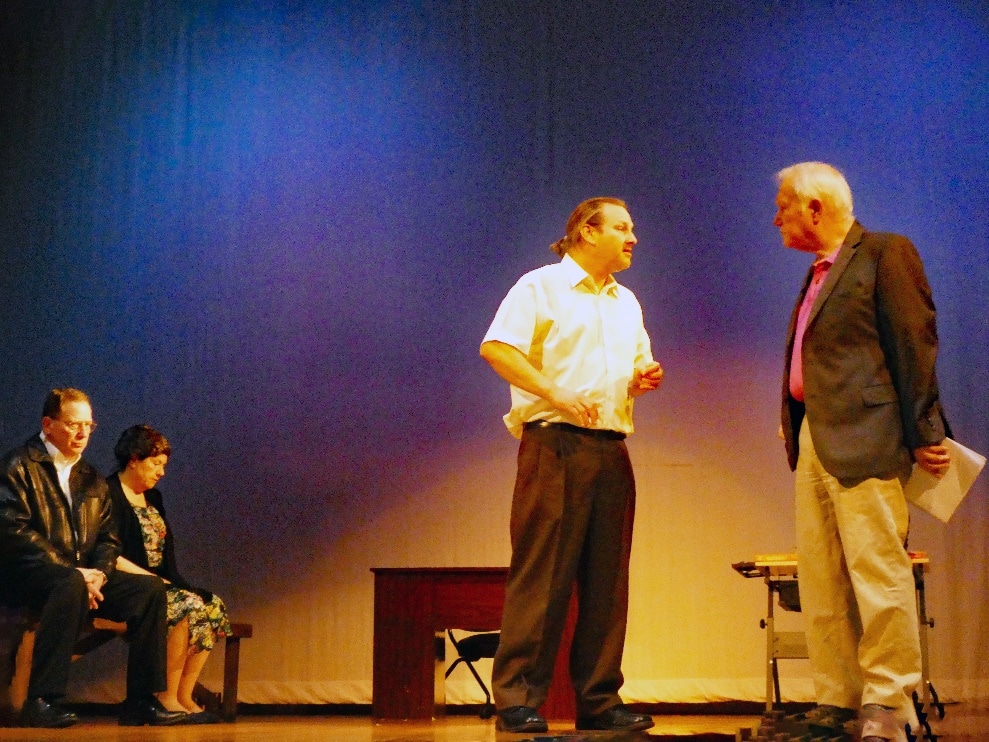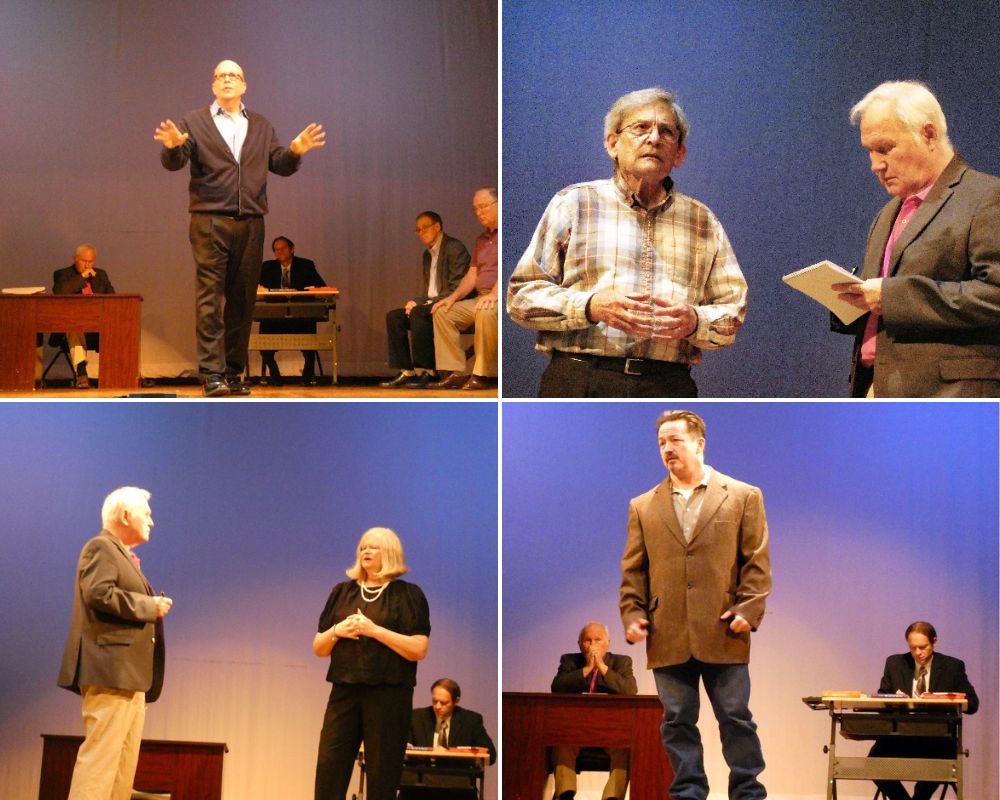“I didn’t know then, what I know now.”
Released in 1985, Shoah was a landmark documentary directed by French filmmaker Claude Lanzmann. It provided a comprehensive and powerful exploration of the Holocaust, featuring testimonies from survivors, witnesses, and perpetrators. Lanzmann spent over a decade collecting interviews and footage, creating a nine-and-a-half-hour film that offered a deeply moving and harrowing account of the Holocaust. The documentary is notable for its absence of archival footage, relying instead on firsthand accounts to convey the enormity of this historical tragedy. Shoah stands as a significant contribution to the historical documentation of the Holocaust.
Lanzmann’s approach was unique: he aimed to create an immersive experience that conveyed the emotional and psychological aspects of the Holocaust. Interviews were conducted in various locations, including concentration camps and other significant sites. The filmmaker faced numerous challenges, including gaining access to individuals who were often reluctant to revisit such traumatic memories.

Director Harry Kantrovich set out to adapt Shoah from documentary to stage play back in January 2022, premiering the work at Fauquier Community Theater. That production was reviewed in DCTA by Aimée O’Grady. In this subsequent Castaways Theatre production, Kantrovich recounts the challenges creating this staging from obtaining transcription rights to the documentary, to temporal compression, to appropriate visual transitions, all while maintaining the authenticity of the source material. Kantrovich correctly strikes a balance between honoring the original documentary’s essence and creating a compelling theatrical experience.
In Kantrovich’s Shoah, the audience experiences dramatizations of select interviews from the documentary. The scenes take place in Chelmno, Auschwitz/Birkenau, Sobibir/Vilna Ghetto, Treblinka, Berlin, and Warsaw. The stage is simple: two desks, one for interviewer Claude Lanzmann and one for scholar Raul Hilberg, and two benches placed at a diagonal downstage right and left. As the lights fade at the top of the show, violinist Kathy Mullen Jackson and cellist Pam Clem play one of Matthew Scarbourgh’s arrangements of Shmerke Kaczerginski’s Songs of the Ghettos and Concentration Camps. These beautiful and haunting arrangements are used as transition music when the audience is transported from one city/camp to the next. The actors enter in silhouette, almost as if the audience has invoked the ghosts of the past to return and share their story.
We are first introduced to Claude Lanzmann (Hugh Hill), who begins the interviews in the Chelmno vignette. Previously an off-camera presence, Hill offers the audience a new look at Lanzmann’s meticulous approach to storytelling and insistence on the truth, often asking questions the audience wishes they could ask the characters. Simon Srebnik (Bryan Mitchell), a Chelmno survivor, recounts that as a teenager, he was sent to dispose the evidence of mass genocide. Mitchell and Hill set the tone of Shoah through their poignant delivery of dialogue, weaving the narratives that immediately grab the attention of the audience.
Other standout performers include Christopher Inlow’s Filip Müller, a Jewish Slovak survivor from Auschwitz. Inlow tragically recounts Müller’s survival by working on the construction of the crematoria and installation of the gas chambers. In a duet scene between Richard Glazar (Larry Finkel) and Abraham Bomba (Michael Mehaffey), both actors delivered captivating performances by embracing a simple presentational style, allowing the authenticity of their characters to shine. Their nuanced expressions and the subtlety of their acting made their performance impactful. Telling the story of a Holocaust survivor demands not only talent and skill but a profound sense of empathy and responsibility.

Each of the 23 cast members delivered awe-inspiring performances immersing themselves in their roles with such authenticity that it became challenging for the audience to remember they were watching actors, only to be reminded that the interviews are the spoken truth from the documentary. The cast’s ability to convey the harrowing experiences of individuals was not just commendable but deeply moving. Through their genuine portrayals, the actors transported their audience into the world of the Holocaust, making the performance a poignant and unforgettable experience.
Rounding out the production team is assistant director/stage manager Natalie Foley, sound design by co-producer Michelle Matthews, light design by Steven Wong, assistant stage manager/props by Pat Jannell, and make-up/hair design by Debbie Martin. Co-producer Thor Matthews is also credited for the videography and photography.
Successful adaptation requires a deep understanding of both the unique aspects of live theater and the essence of documentaries. A play focused on the Holocaust is not intended as a form of entertainment, but rather as a powerful teaching piece that aims to educate, commemorate, and provoke reflection. Theater has the power to engage audiences in a visceral and immediate way. The safety net of fiction doesn’t exist with this production — every atrocity you hear is true. While the subject matter of Shoah is very heavy, the intention is to use theater to illuminate history, prompt discussion, and contribute to the ongoing commitment to prevent historical amnesia. With a recent surge in both antisemitism and totalitarian regimes worldwide, this is a much-needed reminder.
Running Time: Three hours including one 15-minute intermission.
Shoah plays January 12 and 13, 2024, at 7:30 PM and January 14 at 2:00 PM, presented by Castaways Theatre, performing at the AJ Ferlazzo Building, 15941 Donald Curtis Drive, Woodbridge, VA. Purchase tickets ($10–$20) online.
Trigger Warnings: Mention of self-harm, self-murder, physical abuse, verbal abuse, child abuse, death. Not recommended for children without parental guidance.
SEE ALSO: Fauquier Community Theatre’s stage adaptation of ‘Shoah’ — lest we forget (review by Aimée O’Grady, March 18, 2022)





Thank you for this really amazing and well written review.